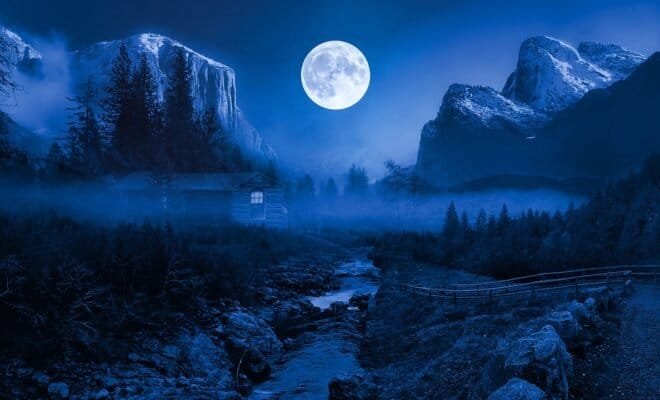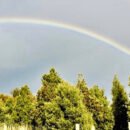The Day the King Died

- The Day the King Died
- Family Ties Revisited
- Those Whom the Gods Love
It’s the early fifties, and the city of Delhi is expanding outside its boundaries. It is advisable to return from distant sightseeing trips or visits before sundown. Despite this expansion over the past 500 years, the iconic Qutab Minar (tower) stands several miles away from city limits. New townships are sprouting far away from the city center. These connect by dark, unlit roads radiating in different directions, with no policing. Thieves attack and rob innocent people under the cover of darkness. Roads leading to and from well-known tourist attractions are notorious for these activities. The New Delhi Railway station is in the heart of the city, several miles from the Minar. Yet, the station’s street is known as Qutab Road – strange! Daddy offers clarification. Tongas line up curbside at the station to await customers who wish to visit distant townships. These tongawallas are famous for their fearless valor and fast steeds to outrun any raiders launching an attack. The name Qutab Road is a recognition and tribute to this special breed of tongawallas.
Our grandfather’s younger brother and his family are living in a new development surpassing the Okhla Waterworks, even further south of South Delhi. Despite being a major landmark, Okhla’s connectivity to Delhi is lacking. Available transportation choices are the unreliable bus service or one of the Qutab road tongawallas. A nearby hillock hosts a small ancient temple for the goddess Kali. Hence, the name Kalkaji is for the budding town. The Qutab Minar is further away to the west.
With my dad away, Tulsi Bhua (Daddy’s aunt), who resides with us, has a strong desire to visit her sister-in-law, who has recently lost her husband. It’s a Sunday morning when Mom, Sudhir (my younger brother), Bhua, and I start our journey. The weather is cool, and Mummy insists we don our sweaters. We walk to Qutab Road. Mummy haggles with a tongawalla. Some negotiations happen with no agreeable price point. Mom concludes the long, bumpy bus ride is the best option.
Some information on the family we’re going to meet. My memory of Jamuna Dai, the widow, is a tall, stately lady with white hair. I have no idea what our relationship is for a long time, running into several decades. It is years before another relative clears the mystery of our close blood ties. She is our Dad’s aunt, and her son, fondly known as Pal Bhapaji, is our Father’s cousin. India and Pakistan’s division puts them on the wrong side of the border, uprooting them. They lose their home and belongings and somehow make it to Delhi as refugees. Pal’s parents, wife Leela Ji, and two younger sisters, Harsh Didi and Santosh Didi, lived in temporary tents for a few months. Eventually, the government allocates them a small house in Kalkaji so they can begin living anew. Pal gets a job at the main Post Office in the heart of the city. He has an old bicycle for the long commute. Once in a great while, Pal stops by our house to say hello or convey a message from his Mother.
As we near Okhla, the worn-out bus stops, and the conductor announces and vaguely gestures toward Kalkaji nearby. We alight from the bus but see no signs of any housing or construction. Undulating fields extend to the horizon, with a dusty sidewalk beneath our feet. The careless driver promises Mummy Kalkaji is just around the next bend.
We start walking in the direction the driver indicates. The bus is out of view now, with not a soul in sight. No one is around. The sun’s warmth makes tiny beads of sweat appear on my forehead, but the cool breeze provides relief. We walk at a steady pace on the dusty path. Soon, we slow down for Tulsi Bhua. Being thirsty and finding no housing, the slower pace is a relief. Mom’s encouraging words, “it’s just around the corner,” do not work. Shade trees are few, and with the sun getting higher and more intense, I ditch my sweater. Bhua tires and slows down further. Ignoring Mummy’s urgency, Sudhir delayed and waited for his dear Tulsi Bhua to reach us. He sets a rhythm to ensure he can keep an eye on both Bhua and Mom. If he feels we are moving fast, he stops and turns away, his eyes on Bhua. He does not budge until he can grab her hand. Together, they make their way towards us at her slow, lumbering pace.
As we walk, we meet a small group of women singing. They bring midday meals to their men-folk working in the fields. Thoughts of lunch make my stomach growl. Mummy engages in conversation, letting them know we are making our way to Kalkaji. The women giggle in surprise. They inform us it is a good ten miles away. Our mother doubts this information we all hear. “These women don’t know how long a mile is,” she declares, pushing forward.
Sudhir continues to repeat his stop-and-go scenario to keep Bhua alongside. Bhua seeks rest, but finds no bench, no boulder, only uneven roadside. She takes a few moments to lean on Sudhir before moving forward. With a searching look, Sudhir meets her gaze as Bhua gives him a reassuring nod.
Fatigue sets in, we are sweaty, and crave a drink. We plod along. At last, we make it to the edges of Kalkaji. Mom locates the correct address and surprises our relatives. They are in disbelief at our ordeal, the long trudge. Santosh Didi hurriedly serves up cold drinks. We learn of our mistake; we were aboard the wrong bus. The correct one would have brought us to the end of the street. Another one is due to leave at six o’clock, the last for the day. We need to take this to return home. The remainder of the afternoon passes As we rest our aching limbs and chat with our cousins, Kirti and Kuna. It is our first time meeting them. They appear a couple of years younger than me.
With a glint in his eye, Kirti whispers if we want to witness something exciting. Do we, of course! We sneak out from the back door and move towards the desert-like land. Extensive construction and excavation work is taking place everywhere. Kirti squats, picks a handful of dirt, rubs it between his palms, and holds them out for us to see. Glittering and sparkling hands! Kirti rubs his face and grins at our amazement. His cheeks, nose, and forehead are gleaming! We both do the same and laugh at each other’s radiant expressions. Shouts can be heard calling for Kirti. It’s getting hotter, and we’re getting hungry. Although we want to explore more, the mica outcroppings will be there for our next visit.
A scolding rewards our shining faces. Mummy orders us to “go wash the muck” before we sit down for a late lunch. Replete with the delicious meal, the adults continue conversing about relatives we are unfamiliar with. Sudhir and I are trying to figure out our relationship with the siblings. This is a ponder that lasts for years.
With the evening closing in, we enjoyed a quick tea, hugged everyone, and bid our goodbyes. Walking towards the end of the street to wait for the bus, I see flashing taillights wink at me. I have a sinking feeling in the pit of my tummy as I realize the last bus has left, and we are not on it. Tomorrow is a school day. Dad has very strict rules when it comes to missing classes and incomplete homework.
We return to our hosts’ house. Additional dishes are gotten ready for dinner. Bhua is a venerable guest in her sister-in-law’s home. Custom demands the utmost respect; serving special dishes is a way of honoring her.
A restless night at Kalkaji ensues. Mom looks anxious; she is worrying about us missing school the next day. A strict rule is we miss school if we are sick. I understand Mummy’s concern, but tomorrow needs to be an exception.
Early the next morning, we awaken to Pal Bhapaji’s enthusiastic voice. With confidence, he is declaring, “No need to rush. No reason to fret.”
The morning news is declaring government offices and schools to close for a day of mourning. The King of England, Edward VIII, has suddenly left this life. Images flash through my mind as I recall Princess Elizabeth. She’s been honing her skills to be a queen since she was twelve. At eleven years old, the young princess watches her father’s coronation and understands she will be queen one day. From my earliest memories, every detail fascinates me. I eagerly devour every news item on her life. It’s Monday morning, June 7th; the date is on my mind.
“Savor a few extra moments of restful slumber. Enjoy a calm breakfast and relax. You have all day to get back to Delhi.” I turn over for a quick nap, dreaming of faces shining with mica.
We enjoy fresh hot parathas and tea and at our leisure, head to catch the next bus. Kirti waves and yells, “Come back soon.” Later in the week, Daddy returns from his trip. Both of us tell him how we had a school day off on Monday. Daddy shakes his head in disbelief. A laughing Mummy recounts Sudhir’s behavior. My kid brother gives an impromptu demo, running from room to room, yelling, “Muft ki chutie, muft ki chutie” (a free holiday, a free holiday)!
Editor: Claudia Cramer










